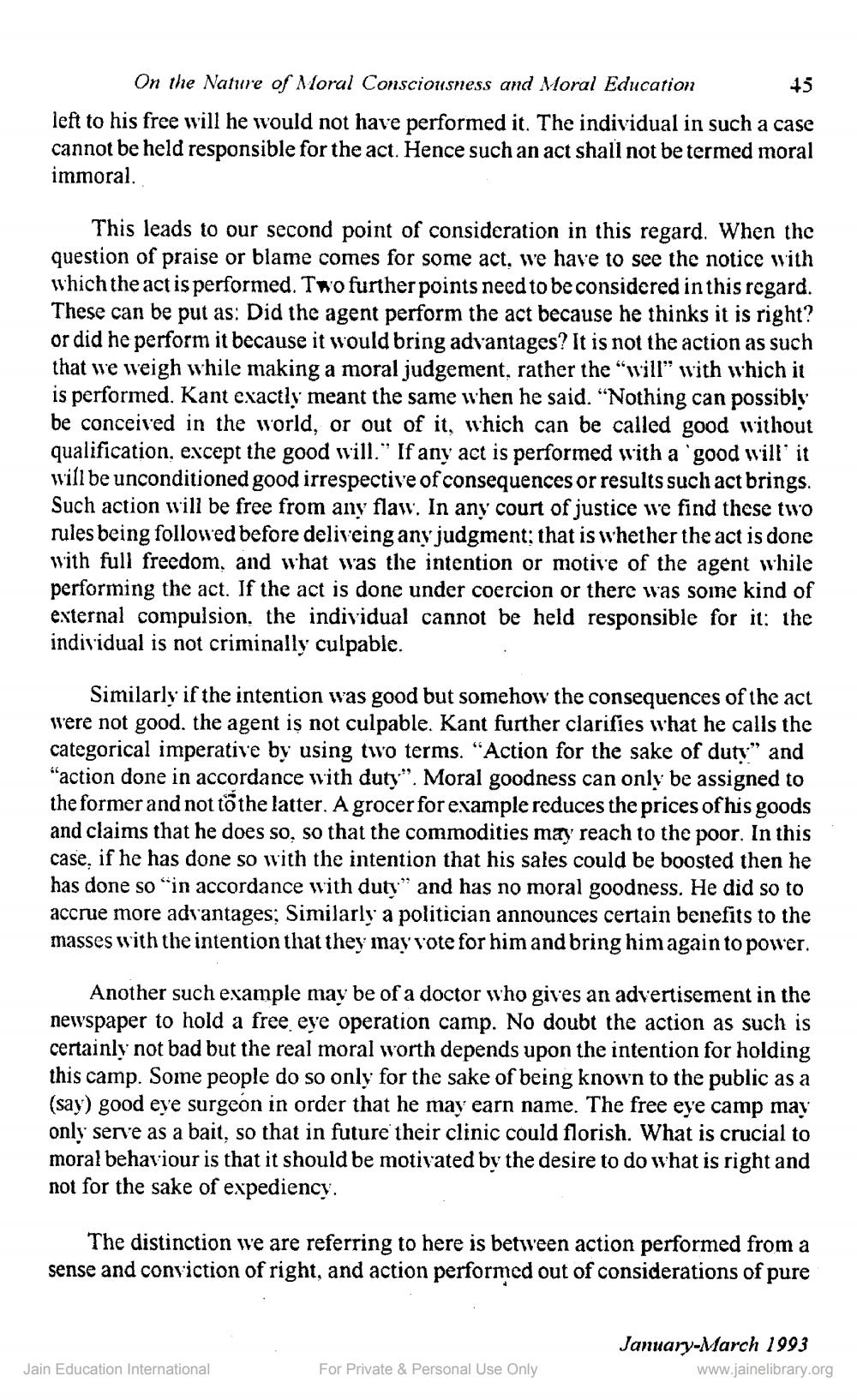________________
On the Nature of Moral Consciousness and Moral Education
45
left to his free will he would not have performed it. The individual in such a case cannot be held responsible for the act. Hence such an act shall not be termed moral immoral.
This leads to our second point of consideration in this regard. When the question of praise or blame comes for some act, we have to see the notice with which the act is performed. Two further points need to be considered in this regard. These can be put as: Did the agent perform the act because he thinks it is right? or did he perform it because it would bring advantages? It is not the action as such that we weigh while making a moral judgement, rather the "will" with which it is performed. Kant exactly meant the same when he said. "Nothing can possibly be conceived in the world, or out of it, which can be called good without qualification, except the good will." If any act is performed with a good will' it will be unconditioned good irrespective of consequences or results such act brings. Such action will be free from any flaw. In any court of justice we find these two rules being followed before deliveing any judgment; that is whether the act is done with full freedom, and what was the intention or motive of the agent while performing the act. If the act is done under coercion or there was some kind of external compulsion, the individual cannot be held responsible for it; the individual is not criminally culpable.
Similarly if the intention was good but somehow the consequences of the act were not good. the agent is not culpable. Kant further clarifies what he calls the categorical imperative by using two terms. "Action for the sake of duty" and "action done in accordance with duty". Moral goodness can only be assigned to the former and not to the latter. A grocer for example reduces the prices of his goods and claims that he does so, so that the commodities may reach to the poor. In this case, if he has done so with the intention that his sales could be boosted then he has done so "in accordance with duty" and has no moral goodness. He did so to accrue more advantages; Similarly a politician announces certain benefits to the masses with the intention that they may vote for him and bring him again to power.
Another such example may be of a doctor who gives an advertisement in the newspaper to hold a free eye operation camp. No doubt the action as such is certainly not bad but the real moral worth depends upon the intention for holding this camp. Some people do so only for the sake of being known to the public as a (say) good eye surgeon in order that he may earn name. The free eye camp may only serve as a bait, so that in future their clinic could florish. What is crucial to moral behaviour is that it should be motivated by the desire to do what is right and not for the sake of expediency.
The distinction we are referring to here is between action performed from a sense and conviction of right, and action performed out of considerations of pure
Jain Education International
For Private & Personal Use Only
January-March 1993 www.jainelibrary.org




